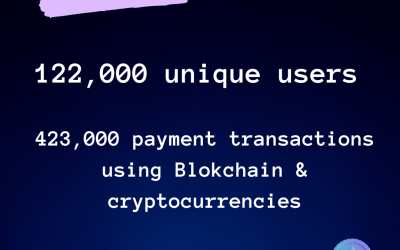
In an increasingly digital world, cash has lost its once-revered status as the king of payments. In fact, around 50% of Americans carry cash less than half of the time – and when carrying cash, 76% hold less than $50. This decline in the use of cash is due largely to the security and ease of use of credit and debit cards. The convenience of paying with plastic, as well as a lack of alternative payments for merchants, has forced businesses to bear the burden of hefty transaction fees on credit card purchases in order to accommodate their customers’ preferred payment methods.
Now, however, payment alternatives abound, and are winning an increasing segment of the market. Many businesses are now moving away from traditional pricing models to incorporate alternative payment structures, such as subscription or installment-based pricing. With this shift in how goods and services are bought and sold, it may be prudent to re-examine the needs of your business. Make changes to your payment network to take advantage of the benefits of various electronic and digital payments, such as crypto payment solutions, to provide customers with greater flexibility in how they pay, while simultaneously reducing overheads.
How Credit Card Alternatives Can Save Your Business Money
Businesses that accept credit and debit card payments will be all too familiar with burdensome transaction fees. Credit card transactions are often accompanied by fees upwards of 3% of the transaction sum, representing a significant day-to-day overhead for any business – especially when selling high-ticket products or services. For every sale conducted through credit or debit card, merchants pay out fees to card providers like Visa or Mastercard, POS terminal providers, and may also be charged for moving funds between different institutions if the customer and merchant work with different banks.

A related drawback attached to credit card transactions is the risk of payment failure. Credit card declines result in payment failure in around 5% of transactions, presenting avoidable remediation costs for merchants. A number of triggers can lead to payment failure in card transactions: card numbers can change, cards may be lost or stolen, and accounts can become maxed out. This is inconvenient for any business, but specifically for companies reliant on recurring payments for their goods or services. Failed payments may not be flagged up instantly and can put pressure on revenue. The remediation process requires the expenditure of valuable staff time on chasing payments, while also potentially straining customer relations. Furthermore, credit card usage will be subject to transaction limits. This could be a problem in the sale of high-ticket items, or when conducting B2B sales.
While credit and debit cards present some drawbacks to merchants, they are certainly convenient – especially for transactions at the point of sale. In this instance, tapping, swiping, or inserting a card is easier and quicker than manually inputting banking information to initiate a transfer. However, the pitfalls are significant for small businesses who will be most affected by high transaction fees, and for B2B or subscription-based businesses, who provide services on a recurring billing model. Payment interruptions for these businesses can disrupt revenue streams and be costly to remediate.
Bank Transfers as a Payment Alternative for Merchants
To avoid high processing fees, payment failures, and make use of a higher transaction limit, businesses may want to consider conducting sales through bank transfer. For these reasons, bank transfers are still the dominant medium of commerce in B2B transactions. Bank transfers are continuing their growth in popularity – Automated Clearing House (ACH) transactions grew to a value of $61.9 trillion in 2020, while B2B transactions for supply chain and vendor payments, as well as bills, increased by 11% that same year by $4.4 billion.
The principal benefit of bank transfers over credit card payments for merchants is the reduction in transaction costs. Rather than paying out a percentage of the sum of each transaction, bank transfer fees tend to be flat and nominal. ACH transfers, for example, cost on average $1 per transaction, with a cap on fees. This represents an area of major cost-saving for businesses – switching to bank transfers could potentially improve margins on every transaction. Furthermore, transactions are more reliable. As long as the payee’s account is open and funds are available, payments will clear, negating some of the payment failures that result from credit card transactions. In terms of fund-clearing windows, processing times are now comparable to those for credit cards, with same-day clearing possible. On a similar note, there are fewer criteria for customers to initiate payment reversals than with credit card payments, providing more payment security for merchants and lessening the frequency with which businesses need to remediate reversals and pay the associated charges.

Additionally, using bank transfers, businesses can set up automated recurring payments. This allows businesses to be paid for their goods and services on a regular, ongoing basis, or receive payment in predetermined installments without needing to prompt customers. This is a particularly useful feature for businesses operating on a subscription model, such as SaaS companies, but also simplifies payments for rent, membership fees, medical expenses, utilities, and ongoing B2B transactions.
Accepting Digital Wallet Payments
Another growing segment of the payment market is the digital payments space. This newcomer to the financial mainstream is experiencing some of the fastest growth and challenging the hold of legacy payment systems on the market. Digital wallet spending is projected to grow 86% between 2021 and 2025, representing a value of $10 trillion – a bountiful source of opportunity for businesses that can incorporate digital payments into their network.
Data security and privacy are significant concerns for customers, with as many as 40% of US consumers opting out of mobile payments due to doubts about transaction security. Digital wallets boast the principal benefit of enhanced privacy for customers. These transactions do not require intermediaries, removing the need for merchants to store customer data on their servers. Removing intermediaries from transactions also makes chargebacks impossible – remedying a serious problem for eCommerce businesses. Digital payments also operate with significantly lower transaction costs, helping to optimize profit margins while giving customers greater flexibility in how they pay for goods and services. Furthermore, digital payments solutions, such as crypto payment solutions, will not have region locks, making cross-border transactions possible and eliminating the risk of card decline which often causes customer churn and harms repeat business. Being able to sell products and services to international customers and receive digital payments opens up your market without introducing payment speedbumps into the transaction.
The Best Payment Alternatives for Your Business
Merchants no longer have to accept hefty transaction fees as a necessary cost in the daily running of business operations, as digital payments continue to shake up the B2C payment space and bank transfers yield numerous benefits for B2B and subscription businesses. It is important to consider the payment needs of your business to build a payment infrastructure that best complements your product and service offerings, while bearing in mind revenue streams and flexibility for customers. It is also important to note that adding bank transfer functionality to your merchant bank accounts may require some set up and a nominal monthly fee.
RocketFuel’s All-in-One Merchant Payment Solution
RocketFuel’s one-click checkout solutions provide a one-stop payment destination for the running of your business. Incorporate bank transfer payments and crypto payment solutions into your network and empower customers to pay for your goods and services via bank transfer or in 120+ cryptocurrencies. Additionally, enjoy receive same-day payout in your fiat currency of choice. RocketFuel’s innovative merchant dashboard provides a multitude of metrics and analytics features to give you direct oversight of your business, as well as functionality to quickly and easily generate invoices and request payments. RocketFuel gives your customers more ways to pay, with support for recurring billing payments in cryptocurrency to empower your subscription business. Get in touch today to find out how RocketFuel can help your business go further.





